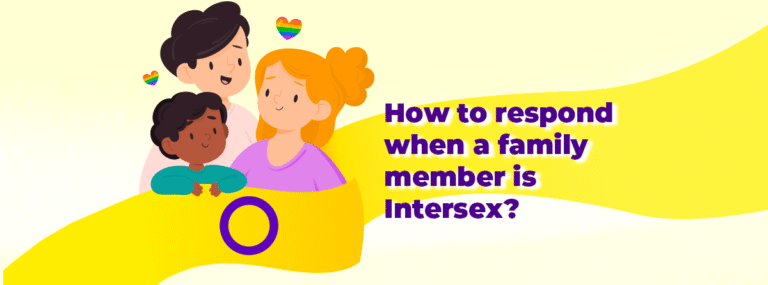Intersex people are those who were born with sex characteristics that don’t fit the typical male or female binary. This community, with a population of around 0,05%-1,7% of the total human population, has long been subjected to a medical model that views their bodies as deviant and in need of correction just to fit a binary social norm. This approach, known as medicalization and pathologization, has inflicted significant harm on intersex individuals.
The social binary norm

The concept of a binary sex system, where each and every one of us is categorized exclusively as either male or female, is a social construct rather than a biological reality. Life is a whole spectrum, and intersex variations, which occur naturally, are examples of this diversity, which challenge the traditional rigid binary framework. The binary sex model adopted by doctors in the past often leads to the pathologization of intersex variations, resulting in significant pain and suffering.
The intervention’s consequences
Intersex people are often labeled by society as “disordered” or “abnormal,” reinforcing the wrong idea that their bodies are defective and need to be fixed. This social labeling resulted in major negative effects on the self-esteem, identity, and social relationships of intersex people. Furthermore, because of that perspective, infants born with intersex variations have been subjected to surgeries for decades aimed at assigning a sex marker and conforming their bodies to societal norms. These interventions, often decided by parents and doctors without the child’s consent or knowledge, have caused irreversible physical and psychological harm.
- Physical Consequences: Surgeries can result in lifelong physical complications, including pain, incontinence, infertility, and sexual dysfunction.
- Psychological Consequences: Growing up with a surgically altered body can lead to deep-seated psychological trauma, including body dysmorphia, depression, and anxiety. In many cases, the altered body decided by parents and doctors does not match the child’s gender identity, resulting in a long and confusing period when they grow up.
However, it’s not always the parents’ and doctors’ fault. In some countries, social pressure can be very severe, which makes parents believe that performing surgery can help their kids in the future. However, that doesn’t seem to be the case.
The Pushback
In recent years, there has been a growing movement to challenge the pathologization of intersex variations. Estimates range from 0.05% to 1.7% of people being born with intersex traits globally. That’s about as common as the population of Japan and not rare or “unusual” like many people believe. Intersex people deserve respect and care just like everyone else, including respect for bodily autonomy as well as putting an end to unnecessary surgeries without their consent. Here are some of the critical priorities we and other intersex activists are advocating for:
- Delay of Surgical Intervention: Many experts now recommend delaying surgical decisions until the child is old enough to fully understand his/her gender identity and be able to participate in decision-making.
- Informed Consent: Adults with intersex variations need to have the right to make informed decisions about their bodies and any potential medical interventions.
- Access to Supportive Care: Providing comprehensive psychological, social, and medical support for intersex individuals and their families.
At Intersex Asia, we join hands with other intersex organizations and activists in the region to advocate for the human rights of the intersex community. Recently, partnered with Intersex Philippines, IA has started the engagement with doctors and parents in the Philippines. The program, namely “Leave no Child Behind” aims to bridge the gap between parents, doctors , and other professionals to support better intersex children in the country, both medically and mentally. This initiative will continue to be replicated in other country in the future.
Looking ahead
Moving forward, it is critical to shift from the traditional medical intervention to a new mindset that affirms intersex people’s identities and bodily autonomy. This can include:
- Destigmatization: Challenging harmful stereotypes and misconceptions about intersex variations using facts and scientific information. Through that, it reduces discrimination and stigma toward intersex people and promotes understanding and acceptance.
- Give authority to intersex individuals on matters related to their bodies: It’s mandatory to include intersex individuals in any matter related to their bodies. They should be able to make their own informed decisions both in medical interventions and social representation (name, pronoun, dress…etc.)
- Research and Advocacy: Supporting research on intersex variations both scientifically and socially to produce evidence that ultimately supports the advocacy for the rights of intersex individuals.
By understanding the effect of medicalization and pathologization on the intersex community, we can work towards a future where intersex people are treated with respect, dignity, and equality.




